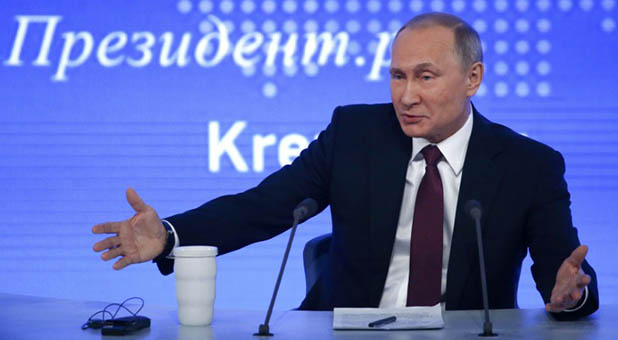“Russia is a riddle wrapped in a mystery inside an enigma. The key is Russian national interest.”
Winston Churchill’s quote came a quarter-century and two months after the start of World War I. In late August 1914, one month into that conflict, a massive Russian army was defeated at the Battle of Tannenberg. While the German offensive through Belgium that brought Britain into the Great War on August 3, 1914 had stalled at the First Battle of the Marne in mid-September, the relatively small British Army committed to France would be destroyed within a year, to be replaced with conscripts.
Ultimately, 700,000 British soldiers were killed. Churchill, as First Lord of the Admiralty in 1914, faced the threat of submarines and a German Imperial Fleet with nearly as many dreadnaughts as the Royal Navy. But Britain endured and prevailed. Russia fought on with some success against Austro-Hungarian forces while a broken economy paved the way for the Bolshevik coup of late 1917.
Barely a quarter-century later on August 23, 1939, Joseph Stalin shocked the world with the Soviet-German Non-Aggression Pact opening the way for Nazi Germany to invade Poland a week later and for the USSR to invade Poland three weeks later. Churchill understood that Russian diplomacy was focused on national self-interest (as well as other ambitions). Although Stalin sought to create an industrial dynamo, his political paranoia instituted a 1938 purge that ravaged his military by executing four out of five Soviet marshals and imprisoning or killing 80 percent of the remaining officer corps. Stalin realized Russia’s vulnerability was along its western flank. He also knew Hitler’s immediate interests lay in destroying Poland and then conquering the Baltic States, the Low Countries, and ultimately destroying France.
In the autumn of 1939, England faced an uncertain future but Churchill was back at the head of the Admiralty. On May 10, 1940, with German forces massed in France and the Low Countries and readying for Operation Sea Lion, Churchill became Prime Minister of Britain. After the Red Army occupied eastern Poland in late September 1939, Stalin ordered an invasion of Finland, hoping to shore up the Soviet Union’s northern flank against future German aggression. At the time, Churchill called for war with Russia. Fortunately, London demurred.
Russia, whether under tsars such as Peter I and Alexander I, or commissars as demented as Stalin or as seemingly enlightened as Mikhail Gorbachev, will pursue whatever is in Moscow’s best interest.
Vladimir Putin is no exception. Furthermore, wise Russian leaders understand and respect force. That remains as true today as it was for Alexander I when he accommodated Napoleon with the Treaty of Tilsit in 1807 before destroying the Grande Armee in the fall and winter of 1812.
Putin is determined to reclaim Russia’s world power status and will do whatever he thinks necessary to achieve that end. Eight years of the Obama administration’s leadership from behind brought the world to a perilously chaotic international situation.
President-elect Donald Trump’s administration inherits challenges from rogue states like Iran and North Korea, the continuing (and growing) threat of Islamist fundamentalism, China seeking regional if not global hegemony, and an emboldened Russia reasserting itself in Europe and penetrating the Persian Gulf and southern Europe via Turkey and the eastern Mediterranean of coastal Syria. Trump must restore America’s international credibility with diplomacy that reassures and supports allies. An insipid foreign policy coupled with a depleted military capability invites catastrophes rendered between 1914 and 1918 and 1939 and 1945.
Russian national interest will be as much a part of Putin’s approach as it was for leaders from Peter the Great to Stalin and—ultimately—to Mikhail Gorbachev. What made possible the December 25, 1991 dissolution of the Soviet Union was the strength of vision expressed by President Ronald Reagan who undertook the largest peacetime buildup of U.S. military might in history coupled to his unerring sense of America’s potential for greatness. The only way to deal effectively with international threats is to do so with credible diplomacy grounded in economic stability and supported by unassailable military strength. {eoa}
Dr. Earl Tilford is a military historian and fellow for the Middle East & terrorism with The Center for Vision & Values at Grove City College. He currently lives in Tuscaloosa, Alabama. A retired Air Force intelligence officer, Dr. Tilford earned his PhD in American and European military history at George Washington University. From 1993 to 2001, he served as Director of Research at the U.S. Army’s Strategic Studies Institute. In 2001, he left Government service for a professorship at Grove City College, where he taught courses in military history, national security, and international and domestic terrorism and counter-terrorism.
This article was originally published at VisionAndValues.org. Used with permission.
See an error in this article?
To contact us or to submit an article





















